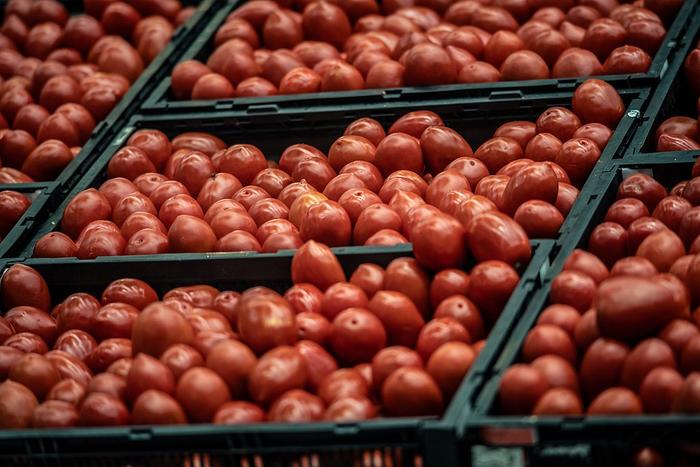
[Global Times Comprehensive Report] With the expiration of the “Tomato Agreement” between the United States and Mexico, spanning over decades, American consumers will have to bear the price increase for tomatoes. In April this year, the U.S. Department of Commerce announced that it would terminate the long-term agreement reached with Mexico on tomato prices on July 14th, which would result in a tariff of about 17% on Mexican tomatoes exported to the United States. The reason given was that the agreement failed to protect American producers from the “unfair” pricing of Mexican tomatoes.
The initial “Tomato Agreement” was signed in 1996. According to the agreement, Mexican tomato producers agreed to sell fresh tomatoes in the U.S. market at a set “reference price,” while the U.S. paused anti-dumping investigations against Mexican tomatoes. The agreement would be renegotiated periodically.
Bloomberg reported on August 8th that the termination of the agreement would severely impact American companies that grow tomatoes in Mexico and import them into their home markets, which are dominated by these companies. According to data from the U.S. Department of Agriculture, in 2024, about 72% of the fresh tomatoes in the United States were imported, with about 90% coming from Mexico.
NatureSweet, an American tomato importer, informed its customers last week that if the agreement is terminated, the company will have to raise prices by nearly 10%. “The profit margin in the tomato business is not high enough for us to absorb these tariffs,” Bloomberg stated. Given that NatureSweet is the largest tomato distributor in the United States, with products distributed across major supermarkets and grocery stores, any price hike could push up the cost of living for consumers nationwide.
American local tomato growers welcomed the termination of this agreement. Robert Gunder, Executive Vice President of the Florida Tomato Exchange, said that over the 30 years since the agreement was signed, the market share of American-grown tomatoes has continuously declined from 80% to around 30% today.
However, many agricultural economists believe that American growers cannot compensate for the impact of a decline in tomato production in Mexico.
The Fresh Plaza website, citing a representative from the Arizona Department of Agriculture on the 9th, stated that the tomatoes produced in the United States are not sufficient to meet the demands of consumers nationwide. The U.S. Department of Agriculture estimated in June that due to new tariffs, Mexican tomato exports this year will decrease by 5%. The Fresh Produce Association (FPAA) is concerned that tariffs will significantly increase tomato prices during periods of food inflation. The FPAA urges the U.S. government to reach a new agreement through negotiations rather than imposing tariffs.
Not only tomatoes, but many fresh fruits and vegetables in the United States rely heavily on imports. According to Reuters, last year, the United States imported $33 billion worth of fresh produce, with Mexico being an important source. Over the past 40 years, the United States has become increasingly dependent on imported fruits and vegetables. In the early 1980s, only 30% of fresh fruit was imported into the United States, but this proportion has now nearly reached 60%.
In the eyes of industry experts, price increases are not the only impact of reducing imports. Professor Mohammed from the University of Tennessee’s Agricultural Research Institute said that reducing tomato imports could also have additional effects, as it would reduce employment opportunities related to agricultural products.
A report released by Texas A&M University previously showed that importing and selling fresh tomatoes from Mexico provides about 47,000 full-time and part-time jobs for the United States.